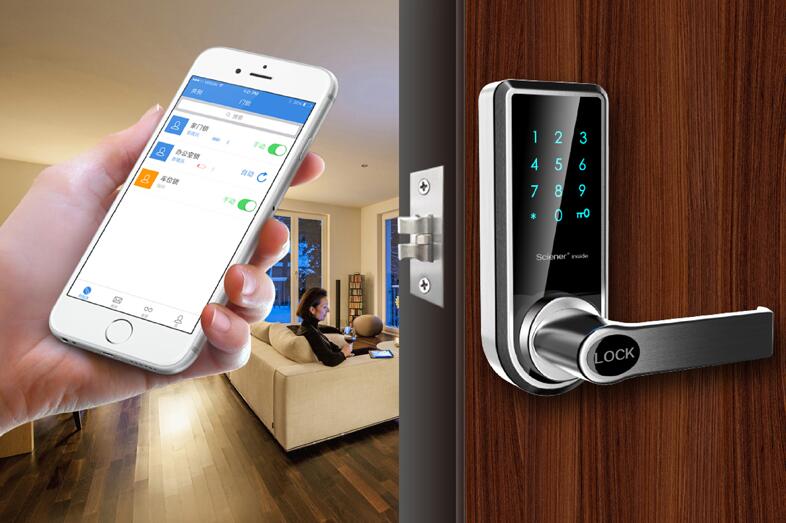The realm of home security has witnessed significant transformations over the years. Comparing traditional vs. modern locks is essential for homeowners and renters seeking to optimize their safety. Both types of locks offer unique benefits, but understanding their differences will help you make an informed decision.
Traditional locks have long been a staple in home security. Meanwhile, modern locks have emerged with advanced features that cater to the evolving needs of today’s tech-savvy world. This article will delve into the various aspects of traditional and modern locks to help you determine which suits your lifestyle and security requirements.

1. The Basics of Traditional Locks
Traditional locks, such as pin tumbler locks and deadbolts, have served as reliable security solutions for decades. These locks operate using mechanical components and require a physical key to unlock. Their simplicity and cost-effectiveness make them popular choices for many homes.
a. Types of Traditional Locks
- Pin Tumbler Locks: Commonly used in residential doors, these locks use a series of pins that prevent the lock from opening without the correct key.
- Deadbolt Locks: Known for their strength, deadbolts provide an extra layer of security by extending a solid metal bolt into the door frame.
- Mortise Locks: Often found in older homes, these locks are embedded in the door and provide robust security.
2. The Evolution of Modern Locks
Modern locks have revolutionized home security by integrating technology and convenience. These locks offer features such as remote access, keyless entry, and smartphone integration. They cater to individuals seeking enhanced control over their home’s security.
a. Types of Modern Locks
- Smart Locks: These locks allow users to control access via smartphone apps, eliminating the need for physical keys.
- Biometric Locks: Utilizing fingerprint or facial recognition, biometric locks offer personalized security and quick access.
- Bluetooth Locks: Bluetooth-enabled locks connect to smartphones, allowing users to unlock doors without removing their phones from their pockets.
3. Advantages of Traditional Locks
- Affordability: Traditional locks are generally more budget-friendly than modern counterparts.
- Simplicity: With straightforward mechanisms, these locks are easy to use and maintain.
- Reliability: Mechanical locks are less susceptible to technological glitches or power failures.
4. Advantages of Modern Locks
- Convenience: Modern locks offer keyless entry, eliminating the need to carry keys.
- Remote Access: Users can control and monitor their locks from anywhere using smartphone apps.
- Enhanced Security: Advanced features such as encryption and user authentication provide higher security.
5. Disadvantages of Traditional Locks
- Key Management: Physical keys can be lost or duplicated, posing security risks.
- Vulnerability to Picking: Experienced intruders can pick traditional locks.
- Limited Features: Traditional locks lack the advanced features found in modern alternatives.
6. Disadvantages of Modern Locks
- Cost: Modern locks often come with higher price tags due to their advanced features.
- Technical Issues: Electronic locks may experience glitches or require software updates.
- Power Dependency: Some modern locks rely on batteries, requiring regular replacements.
7. Making the Right Choice for Your Home
When deciding between traditional and modern locks, consider your lifestyle, budget, and security needs. Traditional locks may suffice for those seeking simplicity, while modern locks offer convenience and advanced security features.
a. Security Priorities
Assess your security requirements and evaluate the potential risks your home may face. Homes in high-crime areas may benefit from modern locks with enhanced security features.
b. Budget Considerations
Determine your budget and weigh the initial cost against long-term benefits. While modern locks may require a higher upfront investment, their features can enhance overall security and convenience.
c. Lifestyle and Convenience
Your daily routine and lifestyle should also influence your decision. Frequent travelers or tech-savvy individuals may appreciate the remote access and control offered by modern locks.
8. Integrating Locks with Smart Home Systems
Modern locks can be integrated with smart home systems, providing seamless control over various devices. Smart app locks allow users to create schedules and automate locking and unlocking processes, enhancing convenience and security.
9. Conclusion
The choice between traditional and modern locks ultimately depends on your unique needs and preferences. Both options offer distinct advantages and disadvantages, so it’s essential to carefully evaluate your requirements before making a decision.
For more insights into high-security locks, you can check this external source for expert advice on selecting the right lock for your home.

Frequently Asked Questions
1. Are modern locks more secure than traditional locks?
Modern locks often feature advanced security measures such as encryption and biometric access, which can offer increased security compared to traditional locks. However, the overall security level depends on the specific lock model and installation quality.
2. Can modern locks work during power outages?
Many modern locks have backup power options, such as batteries, to ensure functionality during power outages. It’s important to choose a model with a reliable backup system.
3. Is it possible to retrofit traditional locks with modern features?
Yes, some traditional locks can be upgraded with modern features like smart lock adapters. These devices allow you to enjoy the benefits of modern technology without replacing your existing lock entirely.
This article contains affiliate links. We may earn a commission at no extra cost to you.





